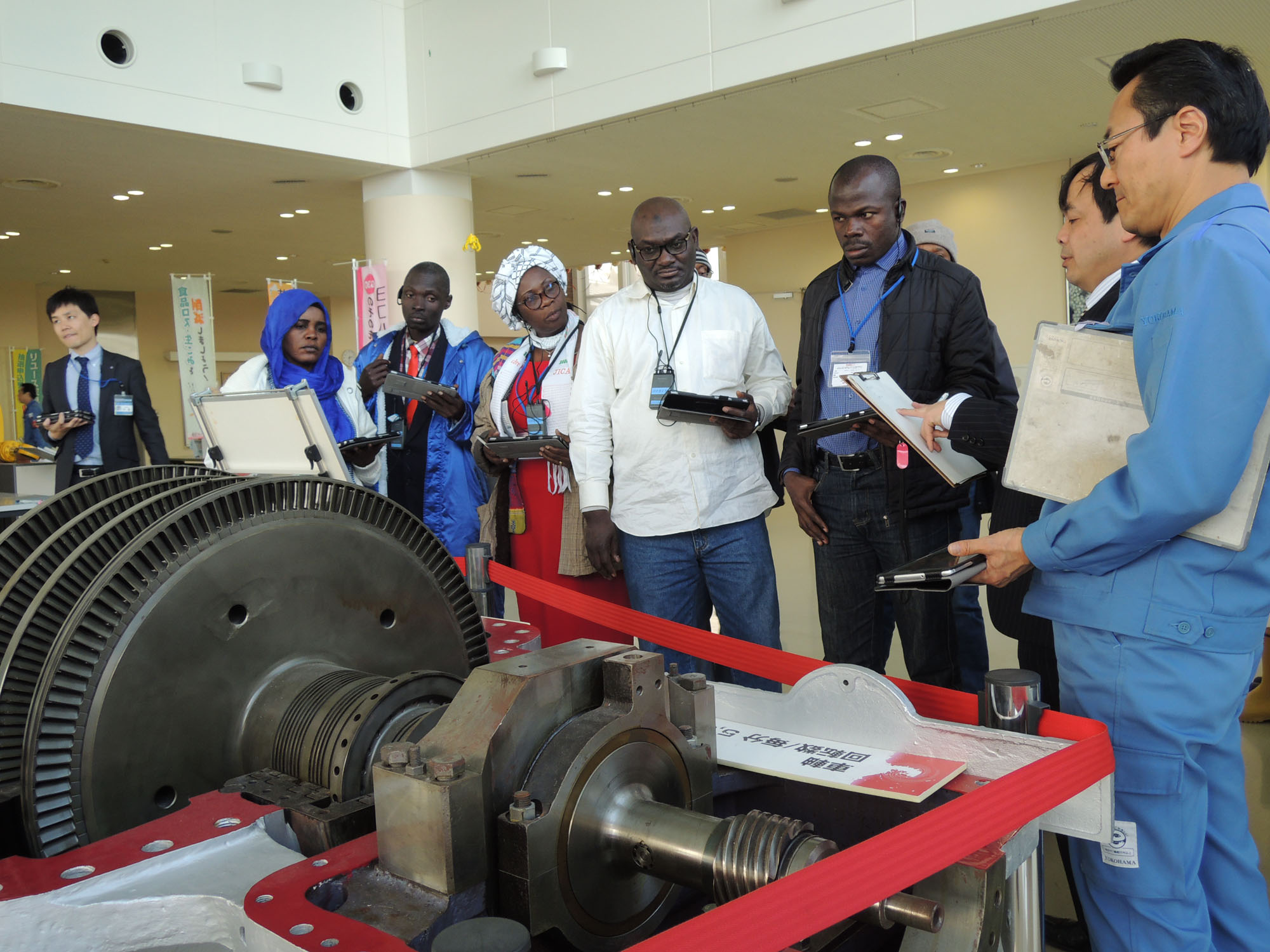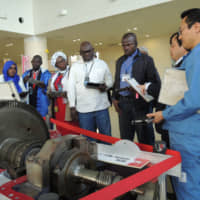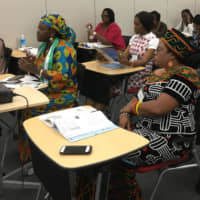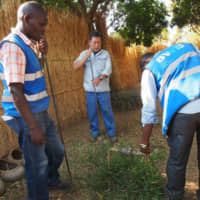Africa has seen remarkable development as a business partner with its abundant natural resources and growing population.
The city of Yokohama has become “the closest city to Africa” in Japan through the experiences of hosting the Tokyo International Conference on African Development (TICAD) twice in the past — in 2008 and 2013. As the host city, Yokohama has actively shared its advanced infrastructure technology and know-how in urban development with African countries while working to enhance mutual understanding.
Using the opportunity to host the development conference once again this year from Aug. 28 to 30, Yokohama aims to further strengthen Yokohama-Africa ties in three areas: technical cooperation, business and women’s empowerment, and next generation and people-to-people exchanges.

Technical cooperation
Having faced and overcome various urban challenges in the past such as a lack of infrastructure as a result of rapid population growth, as well as environmental issues, Yokohama has been applying its acquired knowledge and skills to assist African countries, together with the Japan International Cooperation Agency (JICA).
One area of such technical cooperation is the improvement of water supply systems.
As of fiscal 2018, Yokohama had welcomed 574 waterworks professionals from 47 African countries and also dispatched 71 of its own officials to 13 African countries to provide technical assistance on waterworks. Since fiscal 2014, the city has been dispatching officials to Blantyre in the Republic of Malawi to support improving the water supply system in that country. From June this year, the Yokohama Waterworks Bureau is dispatching an official for a four-year period to Lilongwe in Malawi.
In addition to that, Yokohama Water Co., a subsidiary of the Yokohama Waterworks Bureau, has been conducting nonrevenue water reduction projects in countries such as the Republic of South Africa and Republic of Rwanda.
Apart from such support for improving water supplies, waste disposal management is another area where Yokohama is cooperating with African countries. Due to economic growth and rapidly increasing populations, demand for system improvements has been on the rise.
Given the growing needs, Yokohama is actively accepting officials from those countries to visit waste disposal facilities and recycling plants in the city.
Under the African Clean Cities Platform (ACCP) framework launched in April 2017 jointly by the Ministry of the Environment, JICA, the United Nations Environment Programme and the United Nations Human Settlements Programme, Yokohama also conducts training programs to introduce waste disposal systems and technologies. In fiscal 2018, 24 people from 22 African countries visited Japan to participate in training programs. ACCP’s second general meeting is scheduled to be held in Yokohama on Aug. 26 and 27, concurrently with TICAD 7.
In the areas of ports and harbors, Yokohama annually accepts trainees from African countries to introduce workings of the port of Yokohama, such as its maintenance and development, logistics efficiency and management and operation.
In fiscal 2018, 51 people from 19 African countries visited the port under the training program.
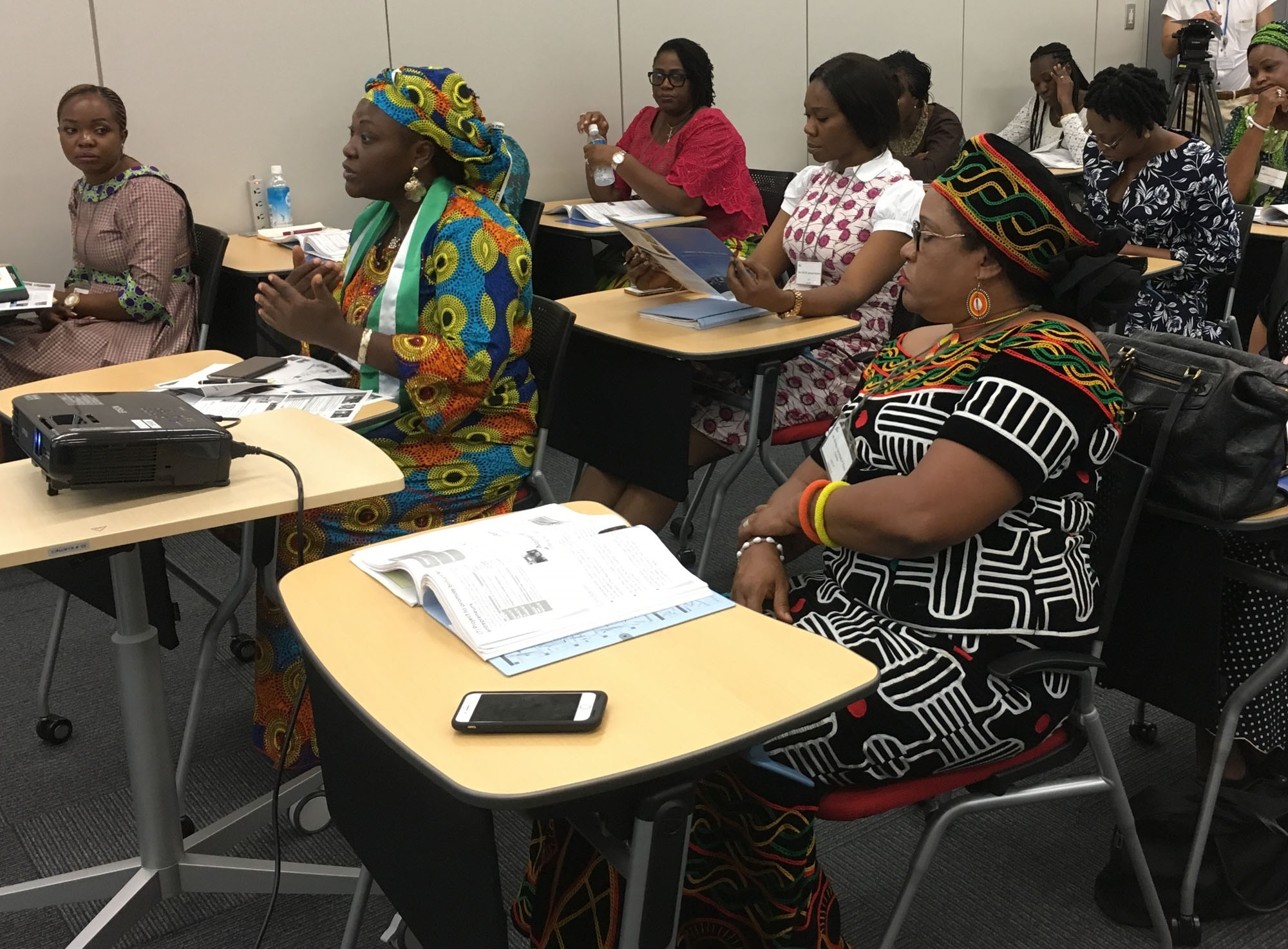
Business and women
Every year, Yokohama holds African business seminars together with JICA and the Japan External Trade Organization to introduce businesses and the investment environment in Africa to local Yokohama companies.
Apart from Yokohama’s efforts on this, the Japanese government and JICA have also been welcoming talented African youth to Japan under the African Business Education Initiative for Youth (ABE Initiative) scholarships. Launched in 2013, the initiative offers African nationals opportunities to study in undergraduate and graduate courses at Japanese universities, as well as work as interns at Japanese companies.
Yokohama has been supporting and encouraging local companies to use the initiative to offer young African nationals a chance to work as interns, as it could lead to the corporations gaining a foothold in Africa.
Women’s empowerment is another area the city has been making efforts in.
During a TICAD V session titled “Driving African Development Through Gender Equality and Women’s Empowerment,” where African leaders including President of the Republic of Liberia H.E. Ellen Johnson Sirleaf participated, Mayor of Yokohama Fumiko Hayashi proposed the creation of a women’s network in cooperation with JICA.
Since then, a total of 88 female entrepreneurs and government officials from 20 African countries visited Yokohama through the end of fiscal 2018. During their stay, they exchanged opinions and deepened mutual understanding with female entrepreneurs in Yokohama.
Next generation
Yokohama is also working to nurture an understanding of Africa among the city’s next generation of youth.
One such example is the One School, One Country program. As of May, 80 elementary and junior high schools in the city and 34 African countries have participated in the program, which sees students learn about the cultures, histories and ways of life in Africa through cultural exchange events with the ambassadors of African countries.
University students have also been working to deepen their understanding of Africa through the Student Conference of African Development in Yokohama program in which students research and discuss issues currently facing Africa.
Having hosted TICAD twice in the past, Yokohama has worked to further deepen a sense of closeness to Africa among Yokohama citizens, holding around 100 events where people can get a glimpse of African culture, people and society.
Under the slogan “Africa and Yokohama, Sharing Passion for the Future,” Yokohama will continue its effort to contribute to Africa and the success of the development conference.
Official TICAD side events
- “Unleashing the Power of Women and Girls in Africa” symposium
Date: Wednesday, Aug. 28, 2-5 p.m. (Please register in advance)
Venue: Pacifico Yokohama Exhibition Hall B02 - “Japan Africa Business Forum and Expo”
Date: Wednesday to Friday, Aug. 28 to 30
Venue: Pacifico Yokohama Exhibition Hall D
A city’s vision to support development
by Fumiko Hayashi
Mayor Of The City Of Yokohama
Using the opportunities provided by hosting the fourth and fifth editions of the Tokyo International Conference on African Development (TICAD) in 2008 and 2013, Yokohama has been steadily establishing partnerships with African countries.
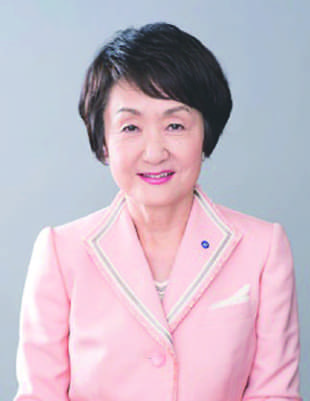
Yokohama has applied its experiences and knowledge, as well as the advanced technologies of local companies to support the development of African cities in fields such as waterworks and waste disposal management. Furthermore, 80 elementary and junior high schools in Yokohama are participating in a cultural exchange program called One School, One Country. The program has helped deepen children’s understanding of Africa.
Yokohama’s theme for TICAD 7 is “Africa and Yokohama, Sharing Passion for the Future.” This theme expresses Yokohama’s determination to create a future where it grows together with Africa through cooperation with the public, private and academic sectors. The word “passion” refers to the driving force of Africa’s remarkable growth and development, and is also an encouragement to the young people of Africa and Yokohama, whose potential is unlimited.
We are honored that discussions about Africa’s future will be held here in Yokohama. The city of Yokohama will pursue all-out efforts to make TICAD 7 successful and will continue its endeavors to contribute to Japan-Africa technical cooperation and economic exchanges.



